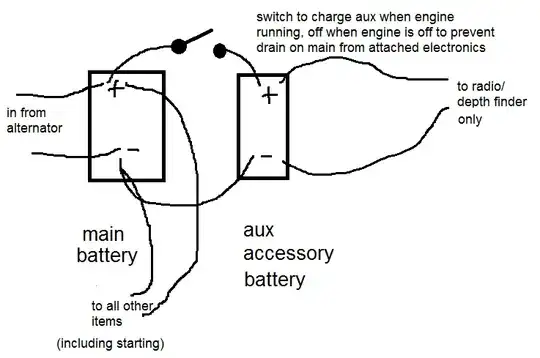I have feared running out of battery voltage to start the boat engine after running the electronics with the engine off. Would something as simple as this figure work? Obviously both are 12V. Main is deep cycle lead acid and aux battery would be smaller lead-acid. When the electronics die, i would know to start the engine and flick the switch on and start charging both again.
I have seen battery isolators - but that seems overly complicated for this application? I suppose it would eliminate the need for a manual switch and remembering that. If i dont flick the switch off when the engine is off, then i would drain both batteries.
Thanks for any ideas guys. Neil